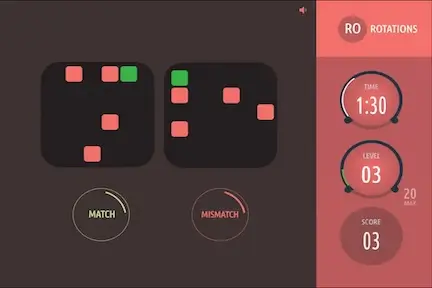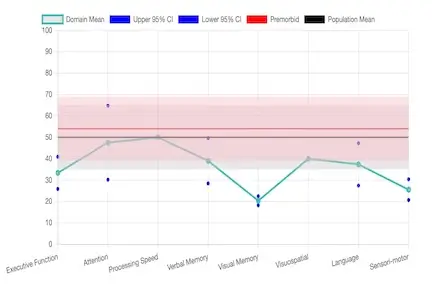The Critical Need for Accurate ADHD Testing & Diagnosis
ADHD (Attention-Deficit/Hyperactivity Disorder) affects individuals across the entire lifespan, often in unique and challenging ways. Obtaining a timely and accurate diagnosis is critical. We offer comprehensive services, including independent psychoeducational testing and focused assessments for school accommodations or work/college accommodations. Early evaluation ensures strategies and accommodations are tailored to individual needs, supporting success in school, work, and daily life.
Children, Adult, and Teen ADHD Symptoms: Executive Function Challenges
ADHD manifests differently across ages, but the core issue often lies in impaired executive functions—the mental skills that help you get things done. Many adults wonder, 'why can't I focus at work and stay organized?' while teens and children may struggle with school performance, attention, and impulsive behavior. Recognizing these patterns helps identify who needs formal evaluation.
Psychological Testing for ADHD in Teens & Children: Signs and Strategies
In children and teens, ADHD commonly presents as:
- Difficulty sitting still or frequent fidgeting (Hyperactivity)
- Trouble following multi-step directions or completing assignments (Inattention)
- Impulsive actions or blurting out answers (Impulsivity)
- Inattention in class or during conversations (Focus problems)
Early recognition and intervention, often including psychological testing for ADHD in teens/children, improves long-term academic, social, and emotional outcomes.
Recommended Book for Parents:
Taking Charge of ADHD: The Complete, Authoritative Guide for Parents
School Accommodations and ADHD Support Strategies for Teens/Children
A professional ADHD diagnosis provides the necessary documentation to secure accommodations, leading to a safe return to learn environment for children and teens:
- Preferential seating to reduce distractions (504 Plan/IEP Support)
- Access to quiet spaces for tests or breaks
- Step-by-step instructions and visual aids for complex tasks
- Organizational supports: planners, digital calendars, color-coded folders
- Positive reinforcement and behavioral support strategies
How to Get Diagnosed with ADHD as an Adult in Florida
Adult ADHD can be subtle but significantly impacts daily life. Challenges include chronic disorganization, procrastination, poor time management, forgetfulness, restlessness, and racing thoughts. Many adults search 'how to get diagnosed with adhd as an adult Florida' or seek a 'neuropsychological evaluation for adult ADHD online' to clarify symptoms and access treatment.
Our comprehensive adhd assessment Florida provides accurate diagnosis and personalized recommendations, helping adults improve executive function, focus, and daily productivity.
The Neuropsychological Evaluation Process for Adult ADHD
Unlike simple checklists, a neuropsychological evaluation offers a nuanced understanding of your cognitive profile, differentiating ADHD from other conditions like anxiety, depression, or sleep disorders. The process typically includes:
- Structured Clinical Interview: A deep dive into developmental history, current symptoms, and functional impairment.
- Standardized Rating Scales: Completed by the patient and, if applicable, family members or partners, assessing inattention, hyperactivity, and executive function.
- Objective Executive Function Testing: Computerized and paper-and-pencil tasks (like CPTs) to measure sustained attention, working memory, processing speed, and impulsivity.
- Differential Diagnosis: Ruling out or confirming co-existing conditions, which is crucial for ADHD testing for adults with anxiety or mood disorders.
ADHD Testing for Adults with Anxiety and Executive Function Challenges
Targeted testing is essential to separate ADHD symptoms from anxiety, depression, or other cognitive issues, ensuring targeted, effective interventions. Common assessment methods include:
- Clinical interviews focused on differential diagnosis
- Standardized ADHD rating scales
- Executive function testing
- Online or in-person neuropsychological evaluation for adult ADHD



